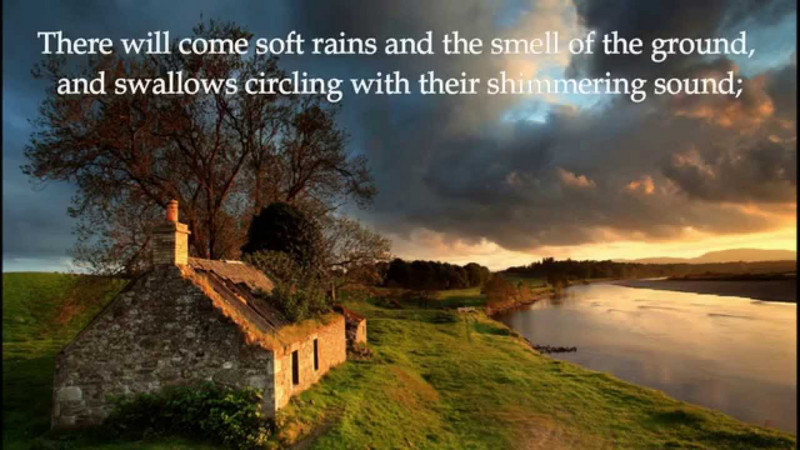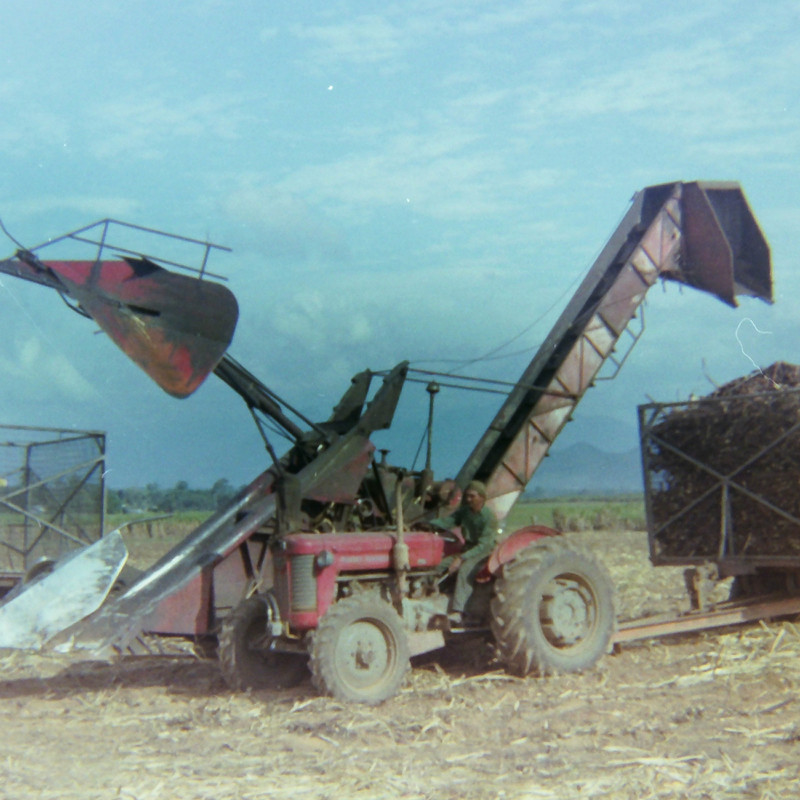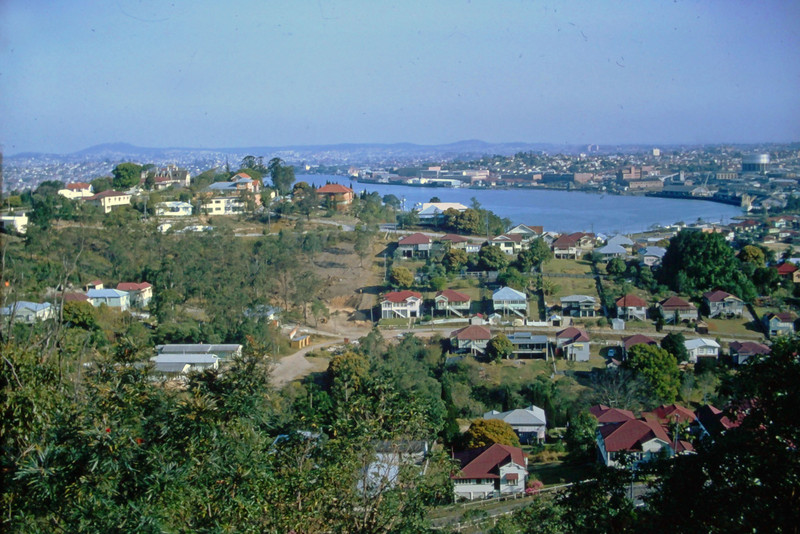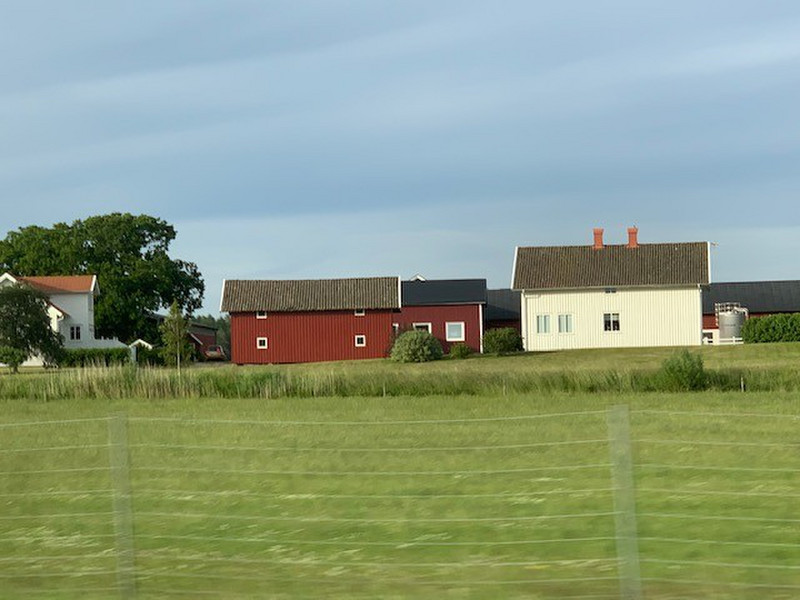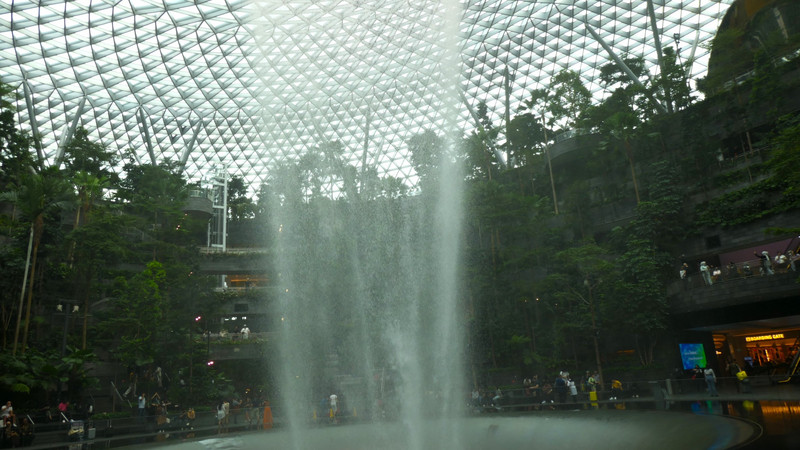Lately I have been haunted by a dystopian short story: ‘There Will Come Soft Rains by Ray Bradbury. The story in itself but part of Bradburys meditation on Mars and the future of Planet Earth: ‘The Martian Chronicles. It is set during a single day in 2026, describing a lone house in Allendale, California, that stands intact in a city otherwise obliterated by a nuclear bomb. We know that a nuclear bomb is responsible because of the sentence: At night the ruined city gave off a radioactive glow which could be seen for miles. The story has no humans in it (they are all dead) and focuses on the automatic processes within the house, which have not been affected by the nuclear blast. The various machines and robots carry on serving their human masters – preparing food, cleaning up, watering the garden and so forth - oblivious to the fact that the humans no longer exist. By the end of the story, the robots have all been destroyed by fire.
The centrepiece of the story is a poem recited by an automatic voice machine: ‘There Will Come Soft Rains by Sara Teasdale:
The message of the poem is clear: the destruction of Mankind will not affect nature one jot. After the apocalypse, the natural world – birds, frogs, trees and seasons – will continue as if Mankind had never existed. The poem paints a picture of an idyllic world.
This message has resonated with me. It reminds me of something my father once said: The world would be better off without human beings on it. As a species, we have been ruthless in our exploitation of our fellow human beings and of other species, and it is hard to be optimistic about
The fact that the machines inside the automated house outlive their human creators is interesting. Is Bradbury saying that technology will eventually more powerful than its creators? I think so. The machines live on after their creators die, and nuclear technology has destroyed the human race. The irony here, of course, is that the machines were invented by human beings, so human beings are ultimately superior. This is emphasized by the stupidity of the machines after the nuclear war; they have no idea their actions have irrelevant.
The house was an altar with ten thousand attendants, big, small, servicing, attending, in choirs. But the gods had gone away, and the ritual of religion continued senselessly, uselessly.
Machines were designed to serve the human race but now, ironically, they have exterminated it. The word ‘gods is surely ironic – meaning false gods whose insanity destroyed the world. Perhaps machines eventually overtook their creators, the new gods.
This is apparent in the simile Bradbury uses to describe an incinerator: an incinerator which sat like evil Baal in a dark corner. Baal was an evil god, just like the nuclear technology which destroyed Mankind and just like the creators of that technology.
It might also be said that that the machines designed to serve, or worship, their human creators eventually became objects of worship themselves. Mans materialism, his worship of objects (at the expense of more important things like peace and love), culminating in his obsession with nuclear weapons, has brought about Armageddon. The madness of the machines at the storys end – making breakfasts at a psychopathic rate – perhaps reflects the materialistic madness of Mankind.
The story works through surrogates and understatement. In the background, off stage, are millions of dead people, but we never see them. All we see in the story are the robot machines left behind and a single dying dog. Bradbury is drawing our attention to absence of humans by focusing on the machines and the dog. There is no need to describe the human carnage; it is implicit in the total emphasis on machines.
has ended, but the Earth lives on and, in time, will be clean again and inhabited by birds and frogs. It really does sound as if Bradbury has a very dim view of the human race.
